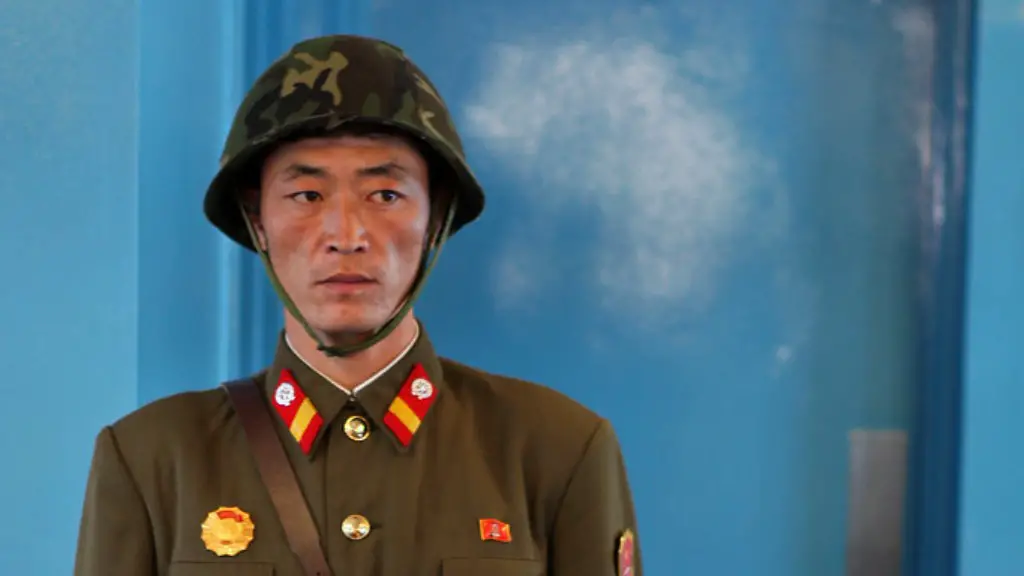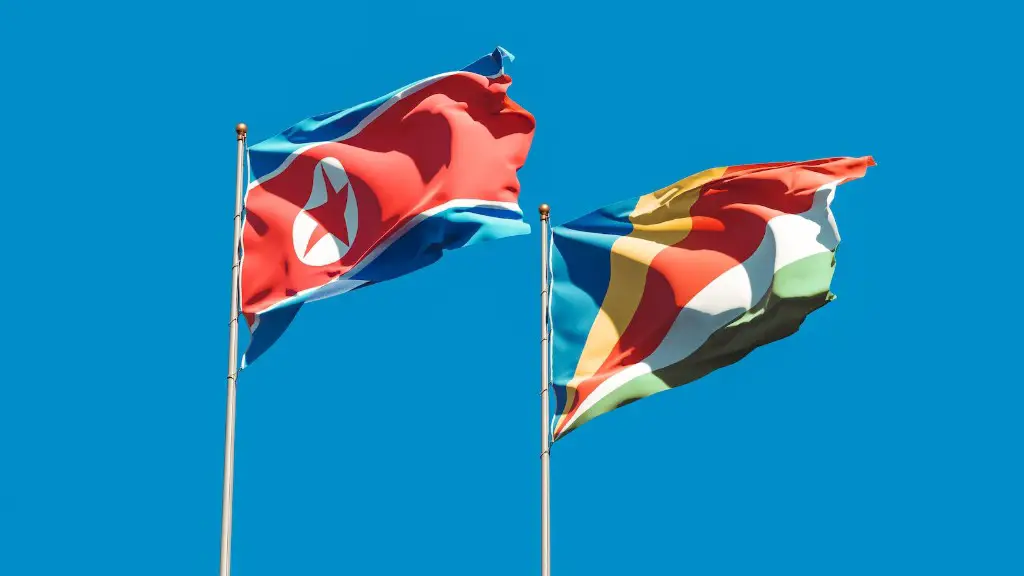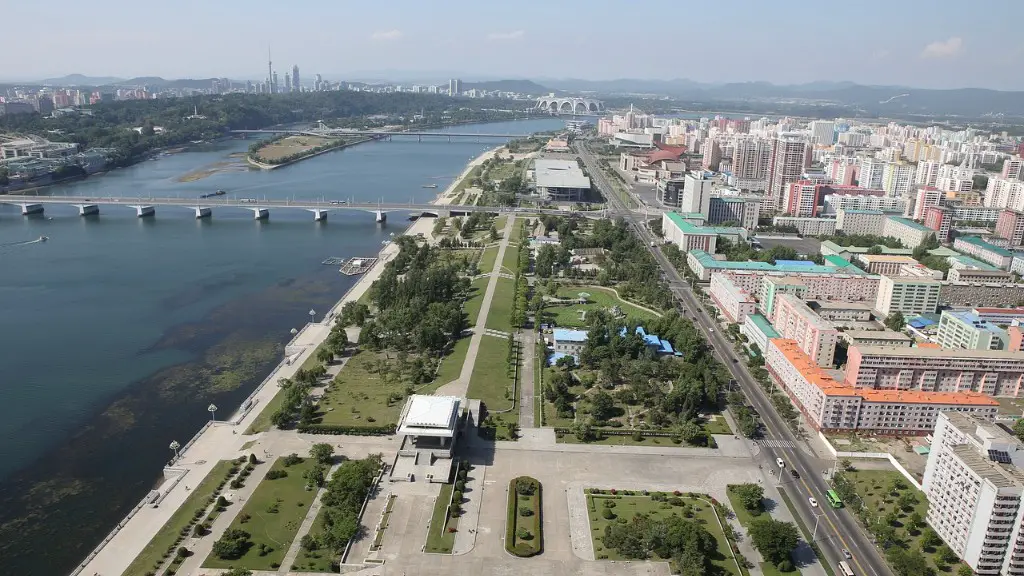Introduction: What is the state of North Korea?
North Korea is a country bordered by South Korea, China, and Russia. The North Korean government has historically struggled with diplomatic relations with neighboring countries and the global community as a whole. North Korea is ruled by an authoritarian government, and the country is known for its military strength, nuclear weapons program, and its Human Rights record, which has been roundly criticized by the international community.
North Korea’s past is highly controversial, as it has been involved in past wars such as the Korean War and the Vietnam War, and has been accused of sponsoring terrorism. In addition, North Korea remains at odds with its neighbors to this day.
North Korean Wars: Historical Context
The Korean War (1950-1953) was a war between the Democratic People’s Republic of Korea (North Korea) and the Republic of Korea (South Korea). It was largely a proxy war for the Cold War, with the United States and China providing the majority of the military support for their respective allies. The war ended in an armistice in 1953, but the two countries are still technically at war as a peace treaty was never signed.
The Vietnam War (1964-1973) also saw North Korean forces fighting alongside the Vietnamese against the United States and other forces. North Korea supplied military personnel, equipment, and other aid to the North Vietnamese Government during the war.
In more recent years, North Korea has been involved in numerous skirmishes with South Korea. In 2010, North Korea was accused of sinking a South Korean naval vessel, the Cheonan, which resulted in the deaths of 46 South Korean sailors. North Korea has also engaged in periods of military exercises, artillery shelling of South Korea’s Yeonpyeong Island in 2010, and has continued to threaten South Korea with military action.
North Korean Attitudes to War
The North Korean government has a long history of militarism and a strong military culture. North Korea has long viewed war as a means to preserve its own power, or to gain new territory. The North Korean government has used propaganda to promote militarism and periodically instills a “war mentality” on its citizens.
North Korea has also invoked its military strength as a form of deterrence against outside forces. North Korea’s nuclear weapons program is seen as a way of maintaining the country’s security and preventing foreign intervention. North Koreans are taught to view war as a way to protect their country and are encouraged to take pride in their military accomplishments.
North Korean War Provocations
North Korea has also become increasingly aggressive in recent years. The country has conducted a number of provocative military exercises and missile tests over the years, which have brought increased international attention and condemnation. North Korea’s leaders have issued a number of fiery threats of war, which have been condemned by the United Nations and other international powers.
The country has also been accused of sponsoring terrorism, as the government provides military support to a number of militant groups around the world. North Korea has also been accused of being involved in cyber-attacks against other countries.
In addition, North Korea’s human rights record has been repeatedly criticized, and the country has been accused of numerous violations of international law. These include indefinite detention, forced labor, torture, and the use of chemical weapons on citizens.
Potential for Future Conflict
The question of whether or not North Korea could enter another war is highly controversial. On the one hand, North Korea’s military strength and nuclear weapons program provide it with a level of deterrence that makes it unlikely that the country would enter into a full-scale war.
On the other hand, North Korea’s leaders have become increasingly isolated and unpredictable in recent years, making it difficult to determine their actions at any given time. North Korea’s continued provocations, support of terrorism, and human rights violations have further destabilized the region and could potentially provoke a conflict.
International Response
The international community has long been at odds with North Korea, and the country is subject to numerous economic and diplomatic sanctions from a number of powers, including the United States. In addition, the United Nations and other international forces have implemented a number of measures to try to de-escalate the situation, such as the continued presence of United Nations peacekeepers in the region.
The United States has also sought to engage in direct negotiations with North Korea, although these efforts have often failed due to North Korea’s refusal to make concessions on its military and nuclear programs. In addition, the United States and other countries have implemented a number of sanctions aimed at curbing North Korea’s aggressive behavior.
Previous Wars, Present Tensions, and the Future of North Korea
North Korea’s past wars and present tensions serve as a reminder of the volatility of the region, and the country’s history of aggression and human rights abuses. The continued presence of United Nations peacekeepers, diplomatic conversations, and economic sanctions suggest that the international community is doing its best to prevent a full-scale war. However, North Korea’s unpredictable actions and aggressive rhetoric make it difficult to know for certain what the future holds for the country.
The Prevalence of Propaganda
One of the most notable aspects of North Korea is their heavy use of propaganda. The North Korean government has long been known for using state-controlled media such as newspapers and television to promote their political agenda. These outlets often use fearmongering tactics to portray the country’s enemies as evil, and to incite further support for the government.
The country has also been known to host lavish military parades to commemorate North Korea’s military strength and showcase its latest weaponry. These events have often been criticized by the international community as they have been seen as attempts to further instill the country’s militaristic culture and scared war mentality to its citizenry.
The Role of the Great Leader
The North Korean government has long relied on the influence of the country’s leader, or the “Great Leader,” to maintain control over its citizens. The leader is seen as a God-like figure and is said to possess supernatural powers. The leader is venerated by the citizens, and their presence is often used to instill a sense of safety and security.
The leader is also seen as the source of North Korea’s strength, and therefore any military or foreign policy decision must be approved by them. This means that the leader’s views and beliefs can have a direct effect on the state of the country.
Economic Struggles
North Korea is heavily reliant on foreign aid and is one of the poorest countries in the world. The country’s economy has continuously struggled due to the country’s propensity for military spending and its often hostile attitude towards its neighbors.
The economic situation has been further exacerbated by United Nations’ sanctions and the COVID-19 pandemic. This has had a profound impact on the citizens, as many struggle to find ways to survive and make ends meet.
Conclusion
The last major war North Korea was involved in was the Korean War, which ended in 1953. Since then, North Korea has been involved in numerous skirmishes and threatened war against its neighbors, which has been met with criticism from the international community. North Korea’s aggressive rhetoric and militarism is a reminder of the volatile nature of the region, making it difficult to assess what the future holds for the country. Nonetheless, it is important to remember that North Korea’s leaders are responsible for the country’s foreign policy decisions, and their actions could potentially provoke a conflict.


